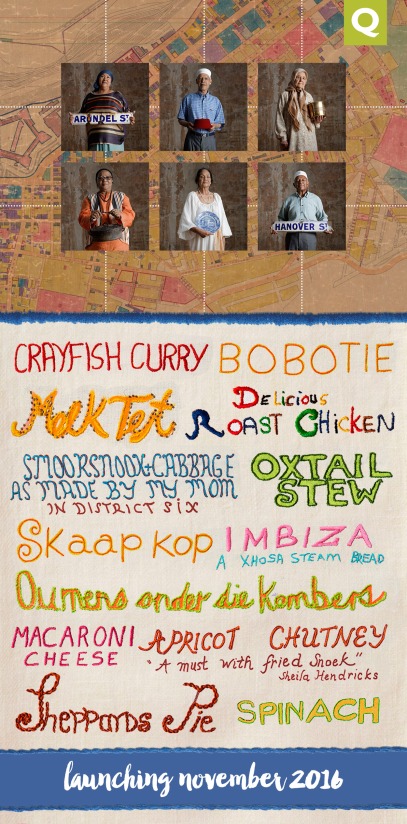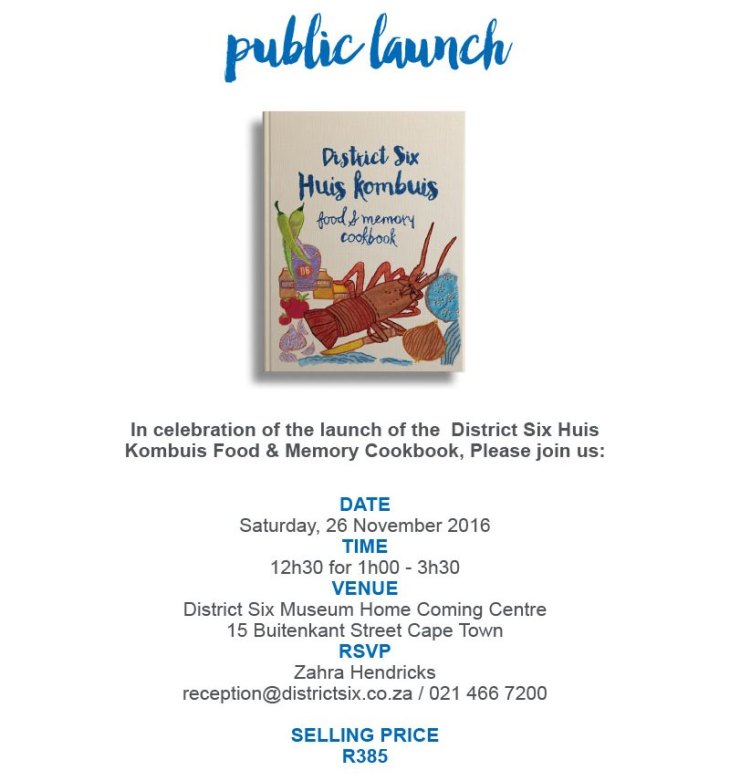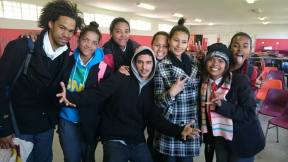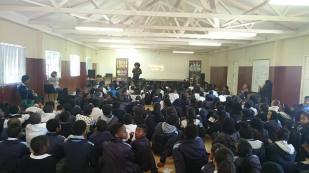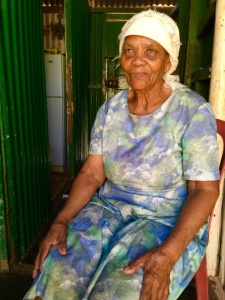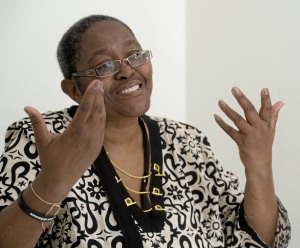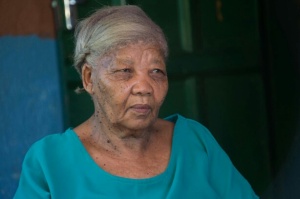 Artwork: Lionel Davis
Artwork: Lionel Davis
“In 1969, my mother and neighbours were all removed from District Six. I only saw the end of forced removals after my house arrest ended in 1976. Only after that was I allowed to go back to District Six, because I was not allowed to come anywhere near Cape Town during my house arrest order.”
The unique journey and life story of former District Sixer, ex-Robben Island political prisoner and artist, Lionel Davis, captured our imagination for this year’s Heritage Day programme.
Born in District Six on 21 June 1936 Davis is described by many as an activist, storyteller and cultural worker, but his contribution to the South African art community and civic organisations exemplifies selflessness and determination against all odds.
A retrospective exhibition of Davis’ artwork entitled Gathering Strands was recently curated by the District Six Museum in partnership with Iziko Museums, and opened in June this year on his 81st birthday at the National Gallery. It runs until 1 October 2017.
As an insider making art about District Six, Lionel Davis created a ‘space’ for reconnection – sharing with us his intimate relationships with people and the spirit of place. Through his work he reminds us not about what was lost but rather how to remember, and about the ordinary things that matter.
For Heritage Day we have developed a site walk retracing Davis’ footsteps – based on a series of pencil drawings and watercolours that he recorded of popular District Six landmarks, buildings and streets before it was demolished. Drawing our inspiration from his Masquerade art series, which was influenced by his strong connection to his slave ancestry, the klopse carnival and African traditional mask making traditions, the procession will feature painted masks, puppets and textile handcrafted banners produced by ex-residents, youth, artists and community members. It will be accompanied by voices of poets and the musical rhythms of the klopse, Christmas and Malay Choir Bands.
Join us!
Date: Saturday, 23 September 2017
Start: 10h00, Lydia Williams Centre for Memory, Chapel Street
[old CAP and old St Philip’s School building]
SEPTEMBER SUPPER CLUB
Thursday, 28 September 2017
 Image:Trudy Rushin and Wayne Bosch
Image:Trudy Rushin and Wayne Bosch
Following on from our wonderful August storyteller is another Cape Town musician, Trudy Rushin!
Trudy Rushin has been a teacher for most of her adult life. Her love for music evolved into a parallel career, and she has somehow managed to find a balance between the two worlds. As an active musician, she sings, plays guitar, writes songs and performs, both as a soloist and in collaborations. With a strong preference for the duo format, she has worked extensively in duos with guitarists Keith Tabisher (since 2003) and Wayne Bosch (since 2008). In 2011, she met Errol Dyers and realised a dream when she performed a concert of her original work with him at the District Six Museum Homecoming Centre (2014).
Trudy sees music as an intrinsic part of her value system, and believes that its transformative power, especially in the lives of the youth, is an untapped resource in present-day South Africa. She is currently the CSI Project Coordinator for Survé Philanthropies, where she works on projects, like The Delft Big Band and World’s Children’s Prize.
Listen here to some of Trudy’s original music.
The cost is R150 and includes a 3 course meal (vegetarian option available).
We start at 18h00, District Six Museum Homecoming Centre, 15 Buitenkant Street.
The perfect way to end off the working month!
Please RSVP with Chantal de Lillie at reception@districtsix.co.za or call 021 466 7200.
‘THE STORIES WE TELL’
District Six Museum Symposium
19 – 21 October 2017
Registration opens: Monday, 18 September 2017
 Photographer: Paul Grendon
Photographer: Paul Grendon
‘It is the storyteller who makes us who we are, who creates history.
The storyteller creates the memory that the survivors must have – otherwise their surviving would have no meaning.’’
Chinua Achebe
District Six Museum has been one of the main advocates for promoting storytelling as a tool for healing, knowledge-making, activism, education, community-building and personal growth – and its ever-expanding oral history archive bears testimony to that.
Storytelling has always been at the heart of the Museum’s work since it started. They have not all been easy to tell or to listen to. They have been mixtures of pain and joy, loss and reclamation, about longing for lost homes and desires for return.
Storytelling has also become a fashionable business tool. High-end storytelling retreats generate good income for entrepreneurs, and many businesses are using storytelling techniques to brand their products. While not denying its validity in these other contexts, we have felt the need to reassert the power of storytelling as practiced and facilitated by the Museum and other partners, as distinct from storytelling in these other contexts. We have felt the need to reflect on the challenges which we face in dealing with the multi-dimensional stories of our country which have some elements of uniqueness. We also need to draw on lessons learnt from practitioners who might not have had the opportunity to reflect on their own practices.
This 3-day symposium will take place in two main venues: Guga S’thebe Arts and Cultural Centre in Langa, and the District Six Museum’s Homecoming Centre in Buitenkant Street, Cape Town. It will include presentations, discussions, workshop sessions, site walks and panel discussions.
If you would like to receive more information about the programme and how to register, please email Ms Eunice Christians on districtsixmuseum.info@gmail.com
Registrations open on Monday 18 September 2017.


